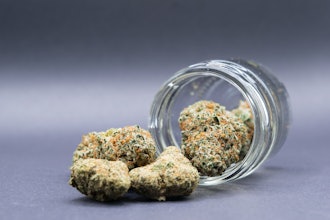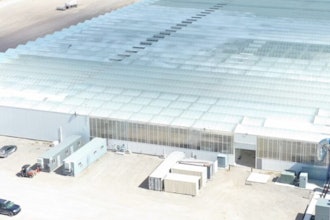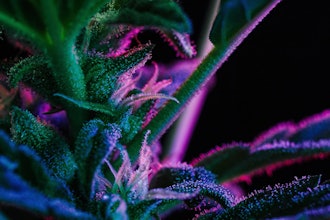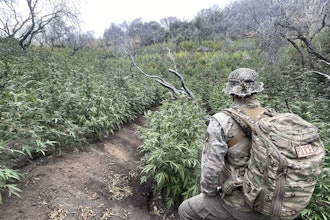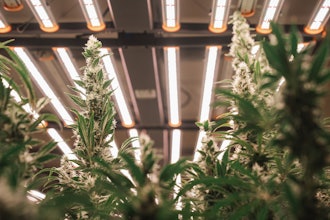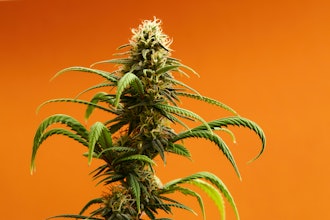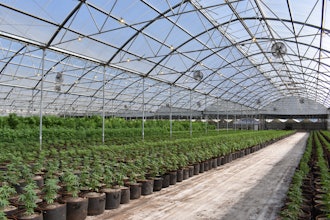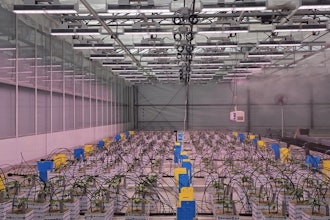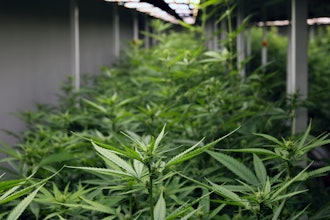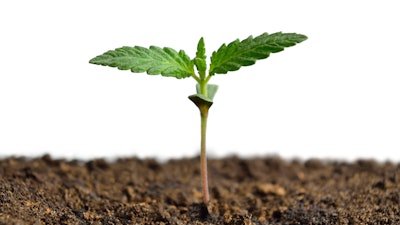
Medical cannabis in Kentucky is off to a slow start. It’s been eight months since the state officially launched its market and it still doesn’t have any cannabis to sell to the more than 11,500 Kentuckians with medical cannabis cards. But the state has a plan to catch up, even if it seemingly flies in the face of federal regulations.
In July, Kentucky Governor Andy Beshear claimed a milestone after Armory Kentucky, a Tier II cultivator based in Mayfield, debuted the first medical cannabis inventory in Kentucky history.
“Through work with the General Assembly to move up business licensing by six full months and providing licensees with the tools they need to get up and running, we are closer than ever to providing Kentuckians with life-changing relief,” he said in a statement.
That "inventory" turned out to be thousands of adult cannabis plants that had been brought in to jumpstart the process and hopefully have products on the shelves at Kentucky medical dispensaries by October. It’s a quick turnaround but one the state likely felt was necessary after all the waiting.
But the governor and Armory representatives both declined to say where the adult plants came from when Louisville Public Media asked. It’s unclear why they wouldn’t comment, but it could have something to do with federal prohibition. States can legalize medical and/or recreational cannabis, but those states can only manufacture and market products that use cannabis grown in the same state. Interstate cannabis commerce is not allowed.
Armory’s lawyer Bradley Clark did give the publication a response, but it mostly echoed what the company had already said. He did, however, offer another interesting bit of information regarding the plants of unknown origin.
“You know, they’re here now, is what I can say,” Clark said. “The regulators don’t ask us, because they can’t ask us.”
Hirsh Jain, founder of cannabis consulting firm Ananda Strategies, said it’s likely the adult plants came from a licensed cannabis operator outside the state, since growing without a license or having an existing hemp farmer grow the plants are both strictly prohibited in Kentucky. Those options would likely be prohibited in other legal U.S. markets as well but Kentucky appears to be the only state to have adopted an interpretation of state regulations that allows for the import of “fully flowering” plants from other states. It’s a unique rule that Jain said several Kentucky lawmakers have vocalized since that state passed its medical cannabis regulations in 2023.
“To state the obvious, this reading of Kentucky's cannabis laws does seem to exist in clear tension with the federal prohibition on interstate commerce between states with legal cannabis programs. It will be interesting to see how Kentucky ‘pushing the envelope’ here will be received both in state from various stakeholders, and from out of state,” Jain said.
He added that Kentucky’s motivation is clear after the delays caused by common challenges like lengthy licensing processes, lawsuits and bureaucracy.
“That said, it is not at all surprising that Kentucky's importing ‘fully flowering’ plants from other states, and then not being transparent about the origin of those plants, is raising eyebrows and drawing scrutiny,” Jain said.
In addition to seemingly “pushing the envelope” on federal regulations, Kentucky’s out-of-state cannabis policy has drawn criticism from local farmers who say they could have grown the cannabis in state and got the market off the ground faster.
Nevertheless, Kentucky’s fledgling medical cannabis market finally seems to be gaining momentum and that state’s cultivation shortcut could provide a blueprint for other new legal cannabis states looking for a shorter path from cultivation to distribution.












